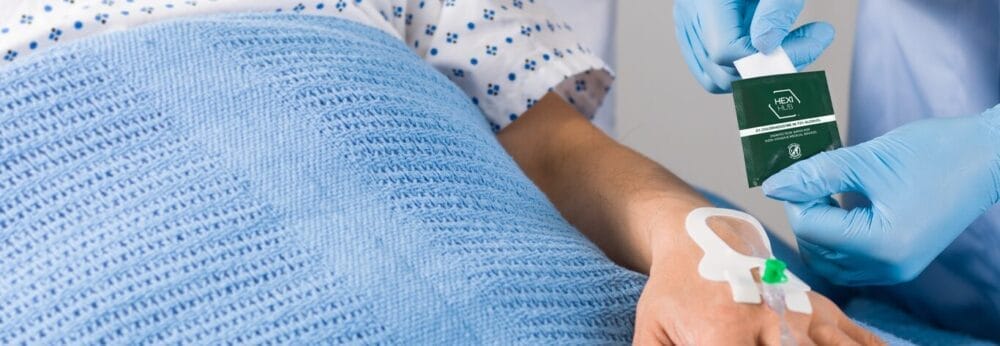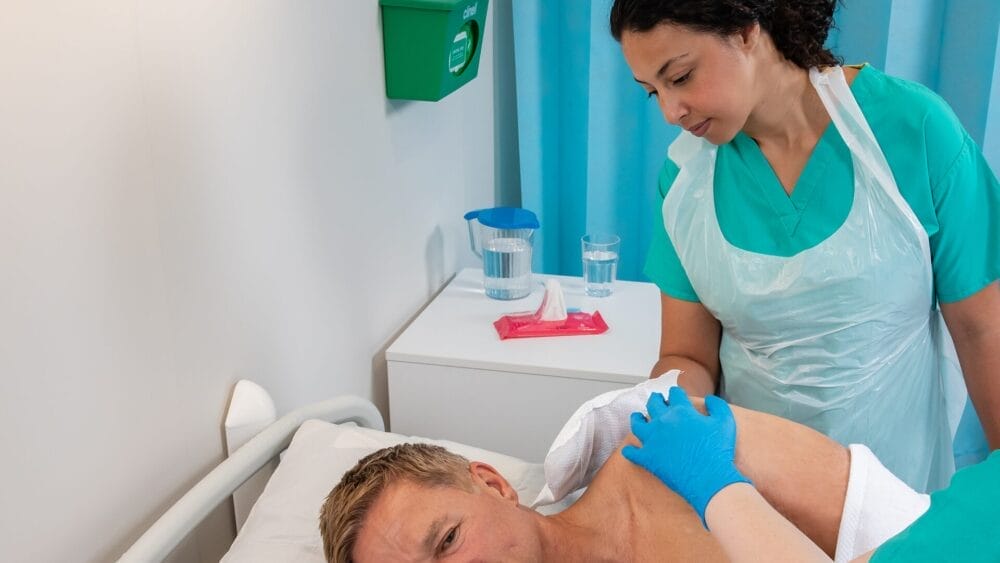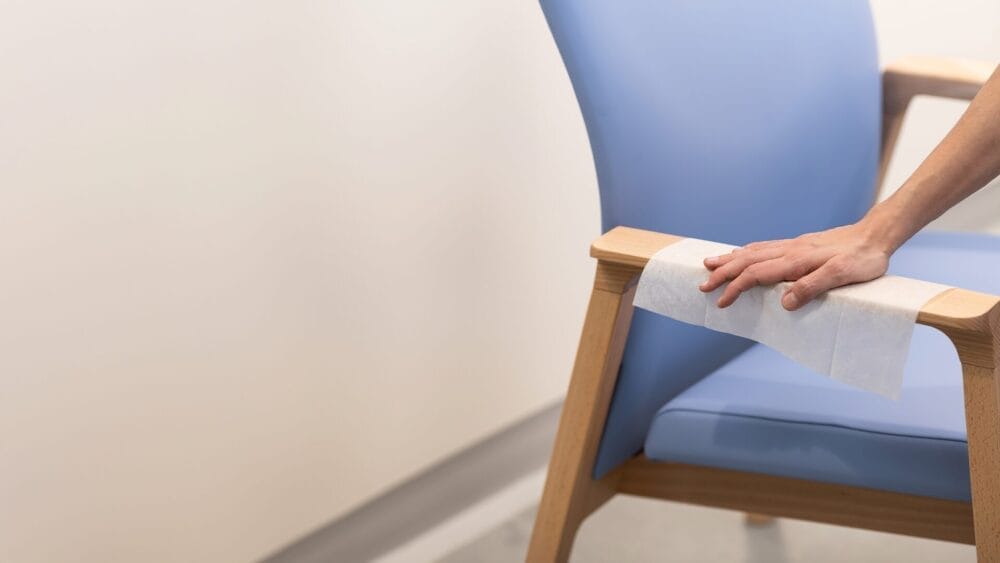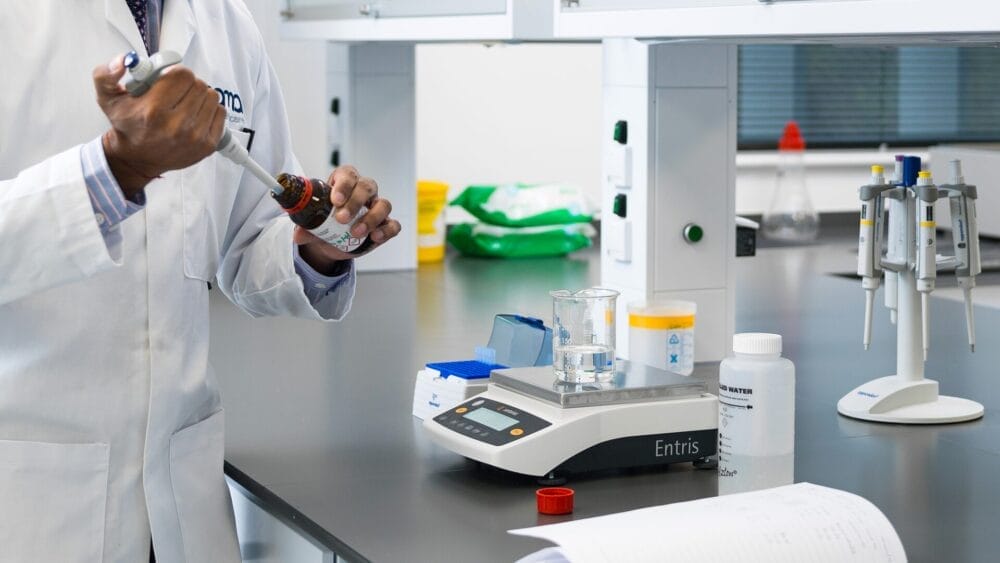Posted
22nd June 2020
Research
The principle transmission route for the SARS-CoV-2 virus that causes COVID-19 is through respiratory droplets. Indirect transmission of these droplets to a susceptible person through contaminated surfaces may play an important – and underplayed – role in the transmission of SARS-CoV-2.
A study from scientists at UCL and Great Ormond Street Hospital (GOSH) uses a DNA marker to model the spread of SARS-CoV-2 from surfaces in clinical settings, illustrating rapid and dynamic spread. The UCL and GOSH team used a fragment of cauliflower DNA to model the spread of SARS-CoV-2 on a paediatric ward. A small amount (100 microlitres) of a solution containing 1.15E+09 copies of the DNA marker was applied to a bedrail in an isolation room on the ward in the morning. Samples were taken from the isolation room and across the ward each day for five days.
The spread of the DNA marker was rapid and spectacular! On the first day of sampling (hours after the bedrail was inoculated), around 40% of surfaces sampled in clinical areas outside of the isolation room were contaminated with the DNA marker. The DNA marker persisted in all parts of the ward sampled over the five-day sampling window (despite the team demonstrating that it could be removed easily though cleaning with a wipe).
This approach has been taken before, and consistently illustrates rapid and dynamic spread of DNA markers around clinical settings. Clearly, this is a model system for understanding how SARS-CoV-2 and other pathogens may spread around wards and other clinical settings. And in this study, the amount of surrogate DNA that was inoculated was rather high, representing a worse-case scenario. However, these findings support the need for frequent and enhanced surface cleaning and disinfection combined with hand hygiene to prevent the spread of COVID-19 in healthcare settings.
SHARE THIS ARTICLE
Tags
Latest News
Introducing HEXI HUB: A seamless transition in our product line
We’re pleased to announce an update to our product offering…
Innovative solutions for tackling Carbapenemase-producing Enterobacteriaceae (CPE) at King’s College Hospitals
King’s College Hospital NHS Foundation Trust, one of London’s largest…
Gloves Off: reducing unnecessary plastic waste during environmental cleaning and disinfection
In this blog, Dr Phil Norville discusses the momentum-gaining ‘Gloves…
Gloves Off: Navigating SDS sheets and skin safety claims in environmental decontamination products
In this blog, James Clarke (Head of R&D, Science &…




